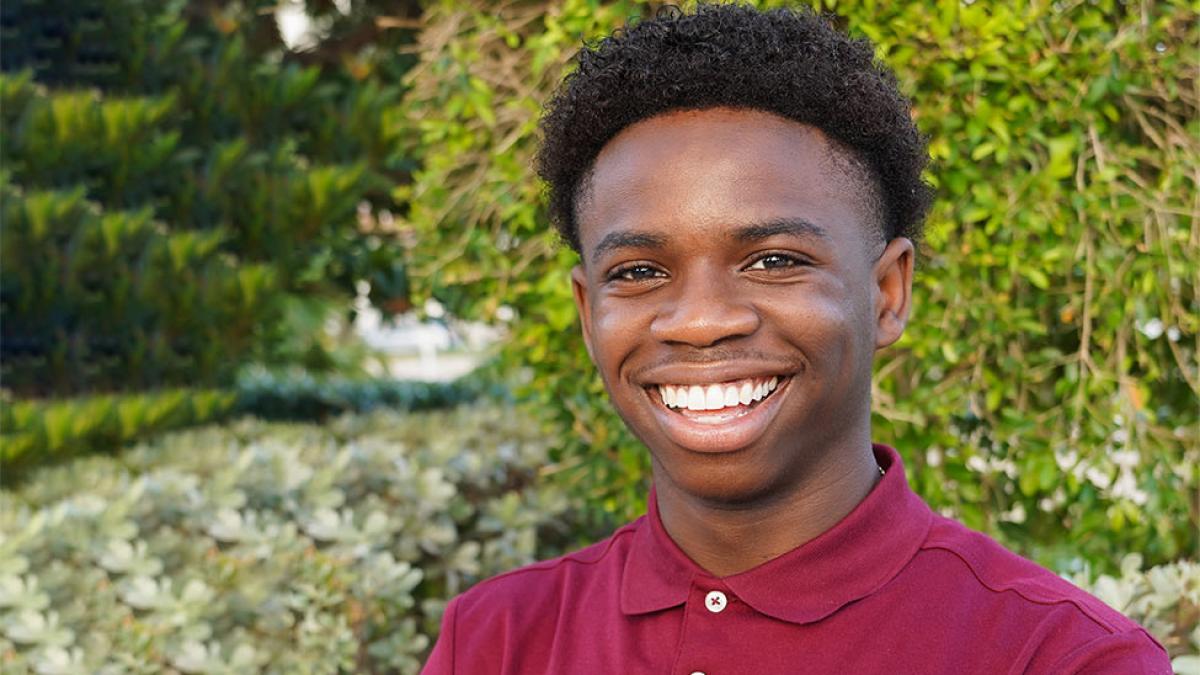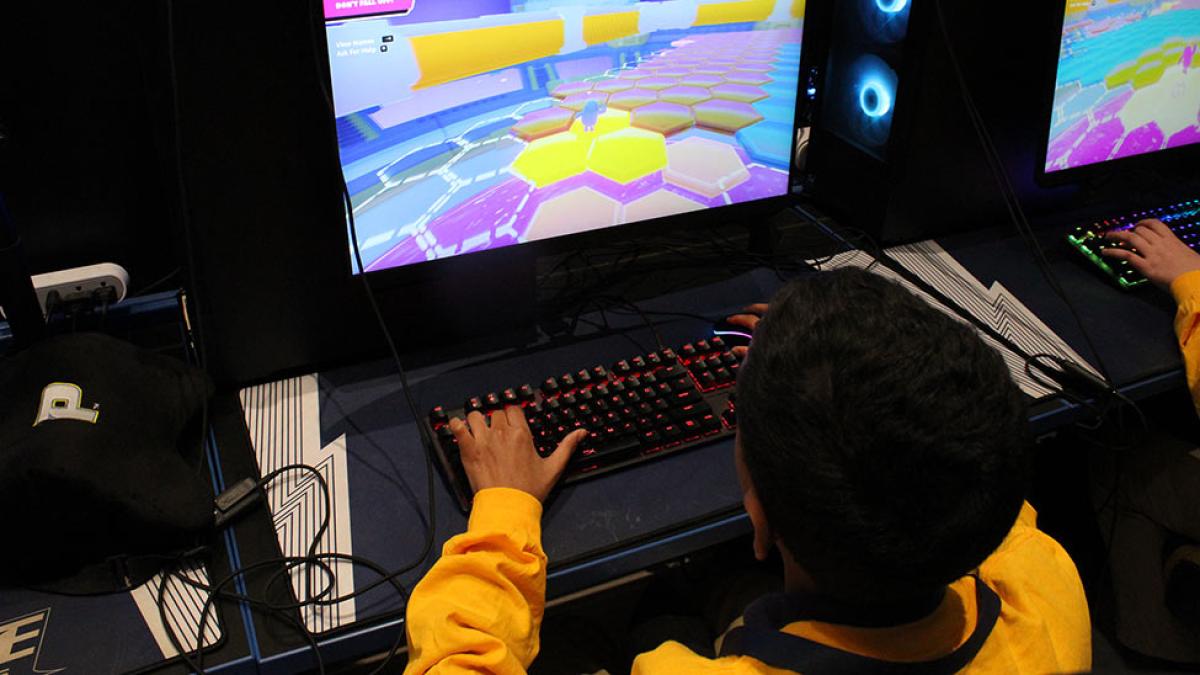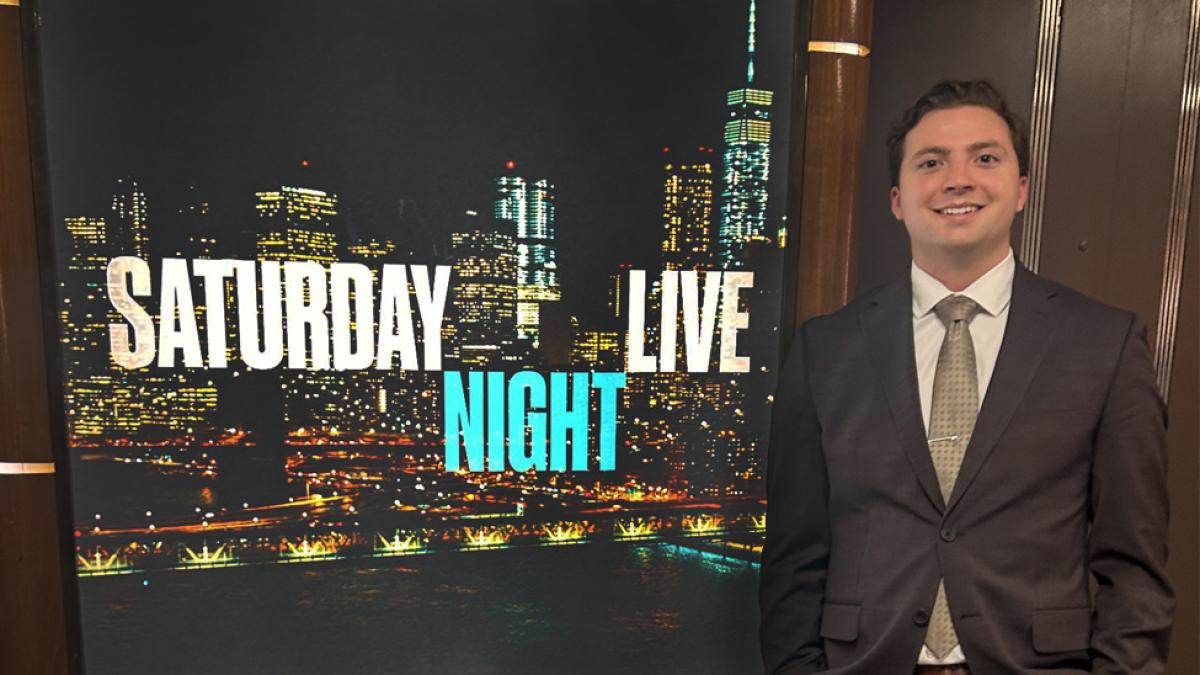Meet Chris Previlon ’27, a Lubin student who came to New York City to find inspiration and grow as an entrepreneur. With his business Beyond Balloons, Chris is going beyond the ordinary to take advantage of every new opportunity.
The Art of Busy
Sunny Shenkman ’25 is a creative with a packed schedule. From on-campus jobs and internships, to extracurriculars and non-negotiables, Sunny shares their secrets to the art of finding the balance in the busy.
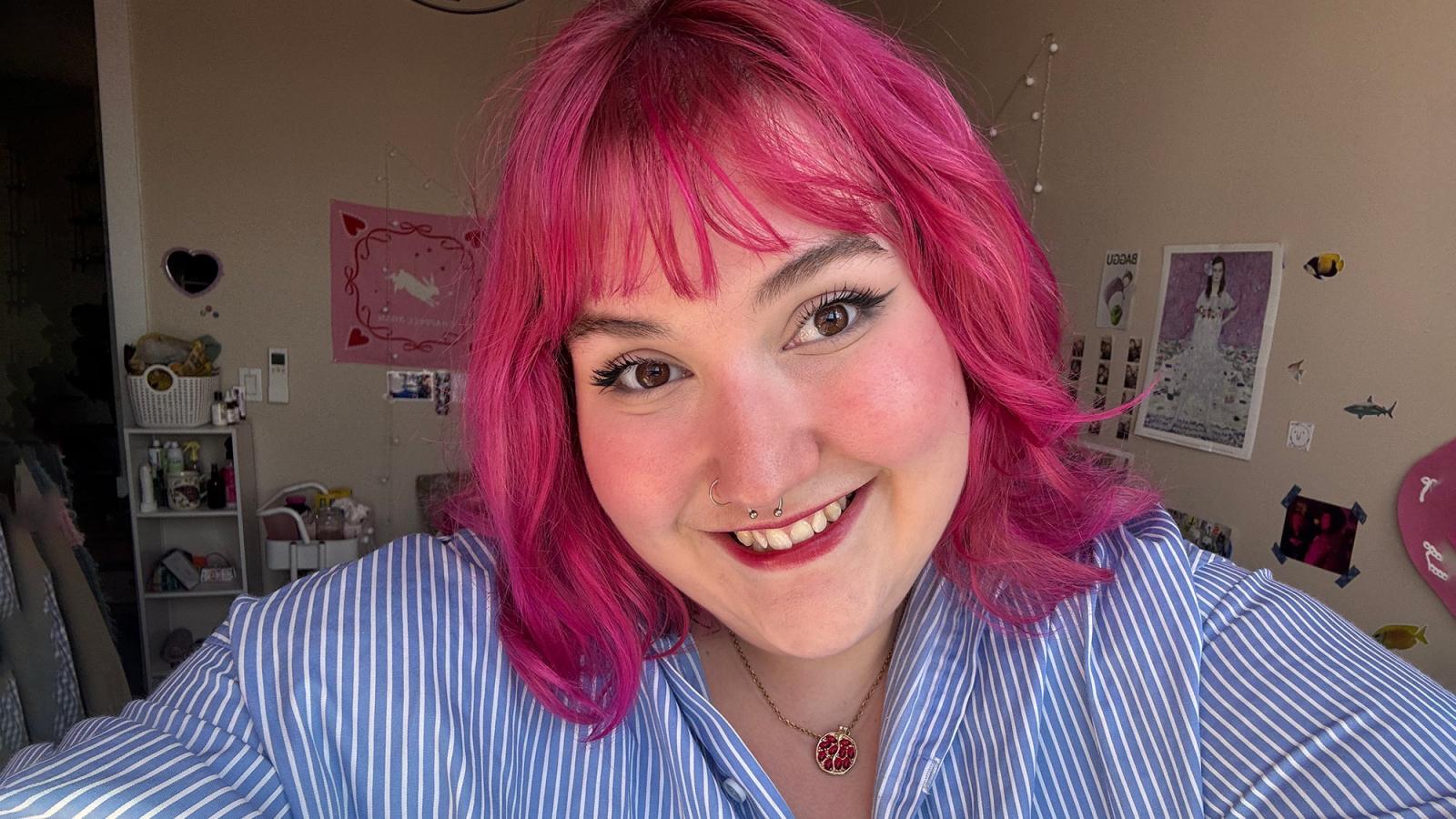
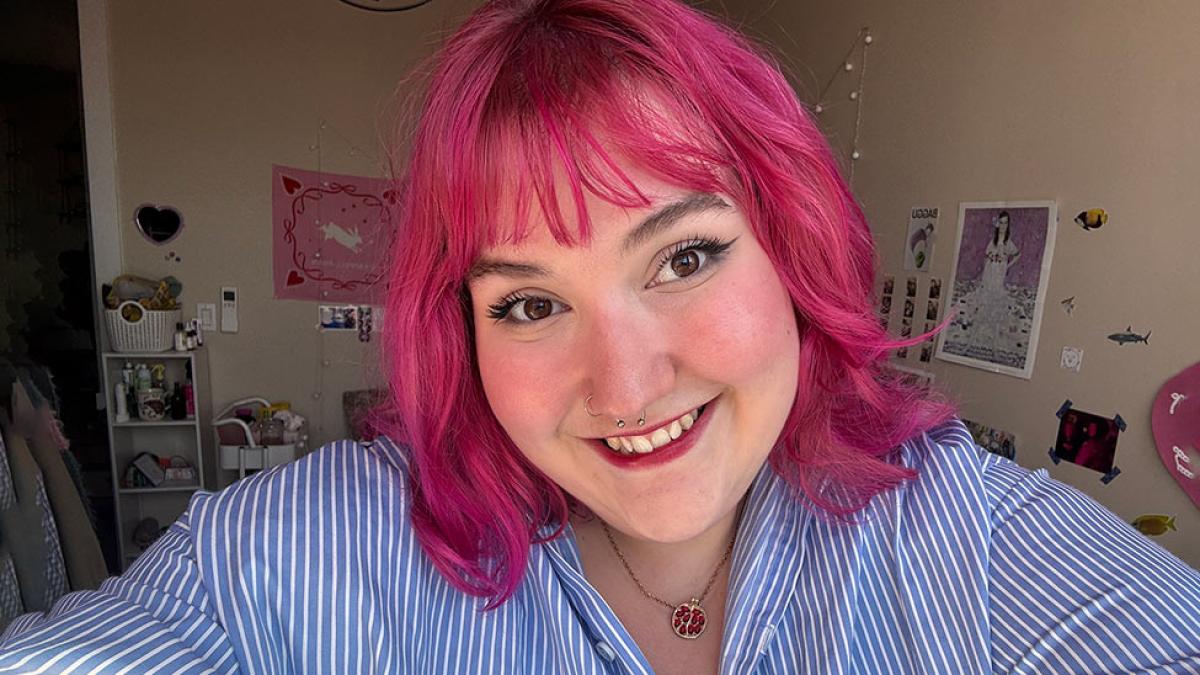
"Busy is good,” says Sunny Shenkman ’25, a Communications and Media Studies major and double minor in graphic design and art. “You’re locked in, and schoolwork becomes easier when you have so much stuff to do.”
And Sunny certainly has a lot to do.
Sunny is the president and editor-in-chief of Pace’s imprint fashion publication Fusion Magazine, as well as the leader of Fusion’s graphic design committee. They’re the director of the Test Print Pop-Up Shop, a rogue art tradition at Pace where students can buy and sell handmade items. They also work as a programming assistant for Pace’s LGBTQA+ Center and as a journalism intern for Brown Eyez Co. They’re also working on illustrations for a children’s book series! And that’s just outside of the classroom.
I feel like sometimes in New York, you have to do everything.
Sunny’s set to graduate this spring and during their time at Pace they’ve learned how to find the balance in the busy. “There are things I just won’t compromise,” they explain. “I have a really big social life and that’s really important to me. But so is getting nine hours of sleep.” They also insist upon prioritizing their health. “You hate that people say it over and over but it’s right: take your vitamins!”
When it comes to the work you want to do, Sunny says it’s about knowing what to sacrifice, and what to hold dear. “I like keeping some things sacred,” Sunny explains. “It's just a negotiation. What is the most important and what can I delegate? Learning how to give up stuff a little bit has been really big for me.”
Sometimes, Pace feels impossible because it seems like everyone has these amazing jobs.
These skills are important for Sunny, especially as they approach graduation and prepare to enter the creative industry, a field that demands adaptability. “What does being a creative even mean?” Sunny says. “I feel like sometimes in New York, you have to do everything. You have to be a photographer and a designer, a leader, an organizer. All these things. And you have to be good at every single one.”
Sunny’s also learned you can’t just stop at trying to learn everything, you also have to show it off. “Sometimes, Pace feels impossible because it seems like everyone has these amazing jobs,” says Sunny. They share how intimidating it can be to see peers sharing their successes and how they’ve learned to tackle that by sharing their own. “Don’t be afraid to be a LinkedIn warrior. One day, I had this switch where I started posting everything I do on LinkedIn because I kept seeing all these amazing things people were doing and wanted to show what I was doing too.”
I like keeping some things sacred. It's just a negotiation.
Finally, Sunny has learned to embrace support. “I really respect Pace’s administration.” Sunny explains how Pace staff—with special shout outs to Todd Smith-Bergollo, senior associate dean for students and Janice Hilbrink, director of endowed scholarships—have shaped their journey in meaningful ways and helped them get to where they are today. “They’ve really come through for me and I won’t forget that moving forward.”
Sunny has made the most of their time at Pace—and they’re just getting started. They’ve learned to balance their schedule and embrace their successes. As they prepare to graduate, their experiences at Pace have set them up to take on whatever comes next.
But first? Maybe a well-earned nap.
More from Pace
Read all about how a partnership between Pace Esports and the nonprofit New York Edge is using competitive gaming to teach local middle schoolers all about teamwork, collaboration, and communication.
Will Schmid ’25 has always thrived when the stakes are high. Now in his final year as an Arts and Entertainment Management major at Pace University, Will has landed the opportunity of a lifetime—an internship at Saturday Night Live during its historic 50th season.
Supporting Women in Economics through Unique Experiential Learning Opportunities
Women remain significantly underrepresented in economics, but Pace's Economics Department is flipping the script. With a 50% female student body on the New York City campus and dynamic experiential learning opportunities, the department is proving that inclusion in economics isn’t just possible, it’s happening.
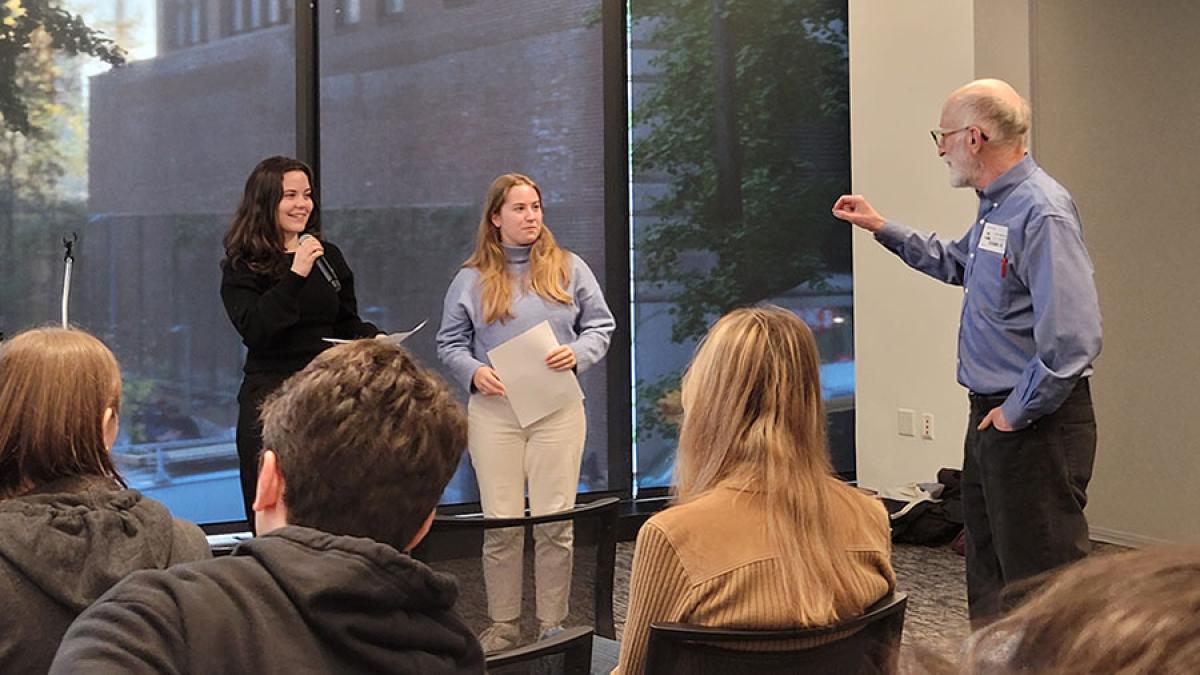
As is the case with many fields that are a part of the STEM (science, technology, engineering, and math) umbrella, economics has seen an underrepresentation of women as compared to men.
According to a Harvard study, nationally, there are about three males for every female majoring in economics, with this ratio not having changed for more than 20 years. This underrepresentation at the undergraduate level also applies to faculty, with the gender gap in economics the largest of any academic discipline, resulting in a lack of many role models for female students.
But don’t tell that to the Economics Department at the Dyson College of Arts and Sciences.
The department, chaired by Professor Anna Shostya, PhD, and comprised of a 50% female student body on the New York City campus, offers one-of-a-kind opportunities for economics, business economics, and computational economics majors to engage in experiential learning outside of the classroom, and many of these have been heralded by female students and faculty.
So, what is their “secret sauce?”
Said Shostya, “The solution to the gender bias in economics may be simpler than it seems: encourage successful female students in the undergraduate courses, present successful role-models to market the field, teach economics in a more applied way, and engage more young women in undergraduate research. And the gender ‘equilibrium’ then will be restored.”
Award-winning competitions
One example can be found in Pace’s award winning Federal Reserve and Fiscal Challenge teams, under the mentorship of economics professors Gregory Colman, PhD, and Mark Weinstock, CBE.
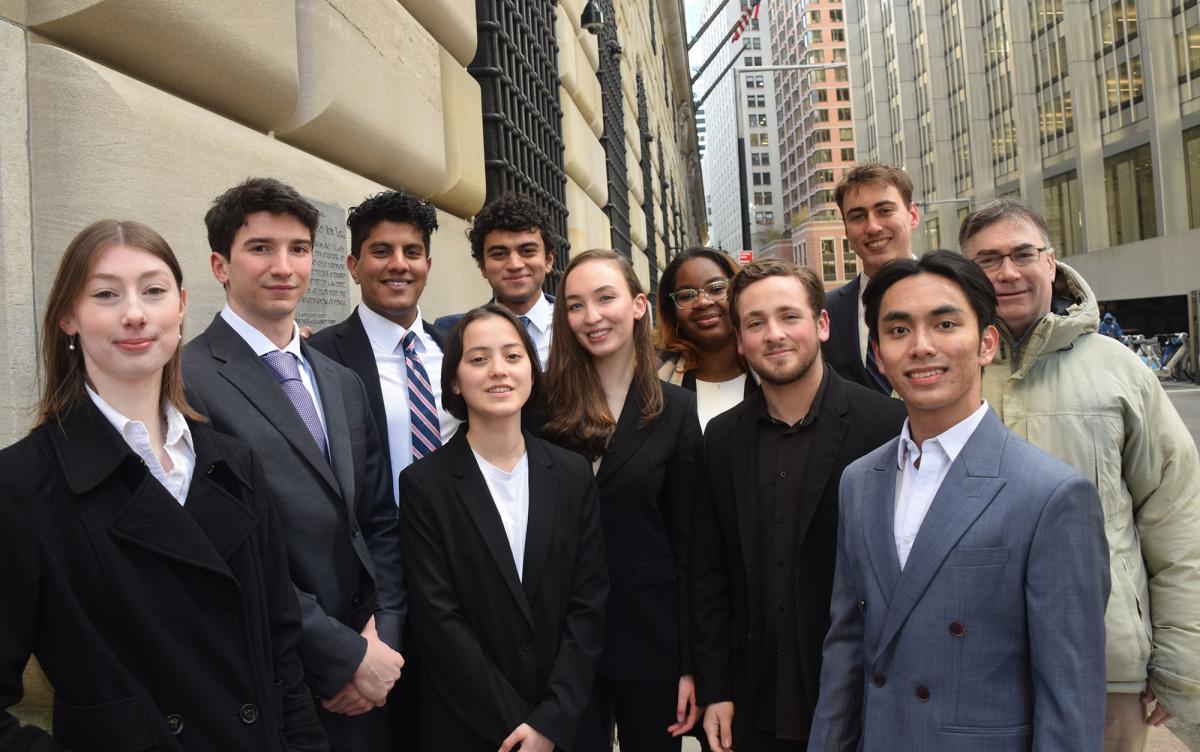
These competitions have seen consistent leadership by female students during its history (to date, a national win five times in the last ten years, besting Ivy League schools like Harvard and Princeton, and, most recently in November 2024, a regional win and top five national ranking).
In fact, in an extraordinary example of female student leadership, its 2021 nationally-winning team, co-captained by Yuwei (Winnie) Liu ’22 and Fiona Waterman ’22, was comprised of as high as 80 percent women, with members hailing from places as diverse as Fishkill, NY, and Beijing, China.
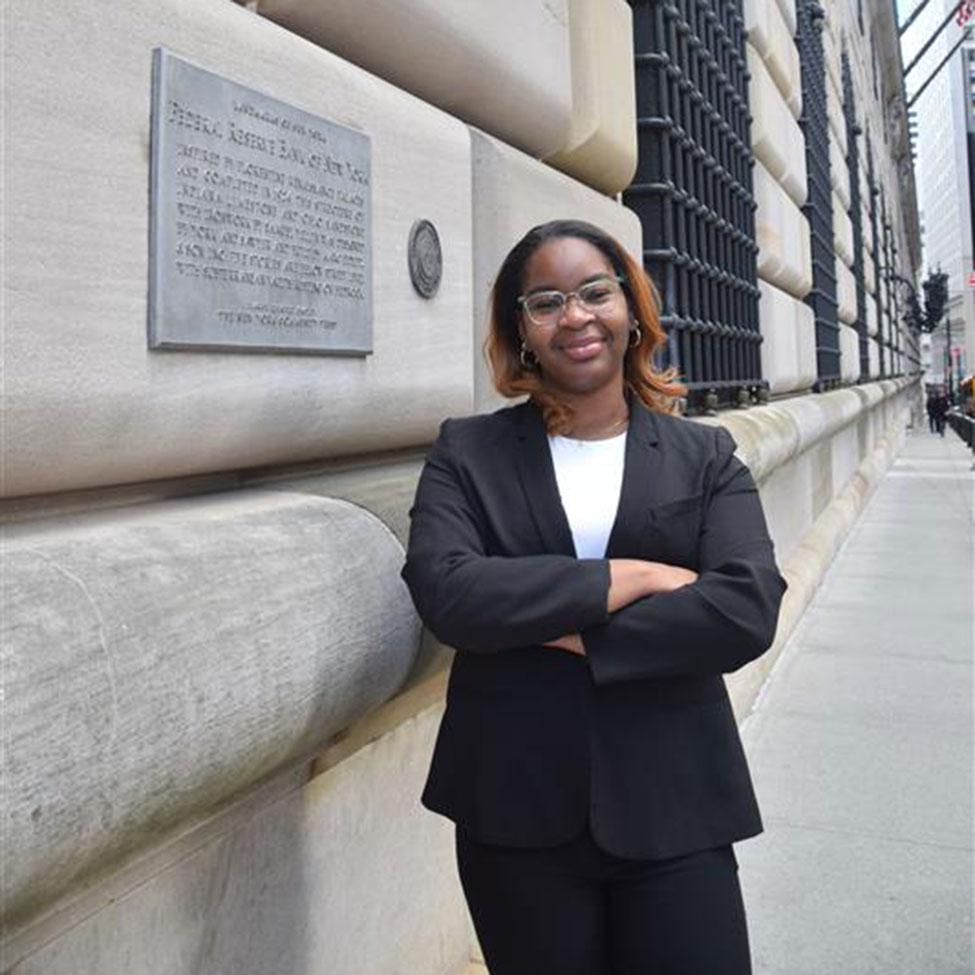
Shaniah James ‘26, who is enrolled in the combined BA in Economics/MS in Applied Quantitative Economic Analysis and Policy program, was a member of the most recent winning team.
Originally a finance major, this self-described go-getter said, “One of the biggest opportunities I have been given thus far is being part of the Federal Reserve Challenge team at Pace. I have met so many incredible people while being on this team, and the recent achievements have made me nothing short of proud of everyone on our team.”
Coursework that mirrors the world
It is often forgotten that economics is a social science, and as a result, female faculty and student leadership at Pace extends to efforts such as increasing societal awareness of important issues.
One example is the work of Viktoriia Yevtushenko ‘25, Business Economics, on the human impact of the war in Ukraine. A member of the most recent Federal Reserve Challenge winning team and a UN Millenium Fellow, Yevtushenko will be sharing her project as a Fellow in an art exhibit on both the New York City and Pleasantville campuses in spring 2025: a display of Ukrainian children’s drawings of their schools and their dreams of the future.
Another example is the work of Shostya, a stalwart for students and recipient of a Kenan Award for Teaching Excellence, in bringing students to the world and the world back to us through her Economic Issues through a Photographer's Lens course, co-taught with Media, Communications, and Visual Arts Professor Inbal Abergil, MFA. In this unique offering, students discuss economic issues as observed by photography taken, culminating with an exhibit, At a Point of Change, in the spring, one that has traditionally garnered interest from the entire Pace community.
Student organizations
Female majors are well-represented in Pace’s Women in Economics and the Economics Society student organizations, which are respectively led by presidents Kristina Krichmaryov ’26, and Kristina Nasteva ‘26.
“Pace is one of those unique universities with predominantly female students in its Economics Department, fostering a tight-knit community of intellectual individuals. The entire department is extremely supportive, resourceful, helpful, and welcoming to all economics students and those of other majors,” said Krichmaryov.
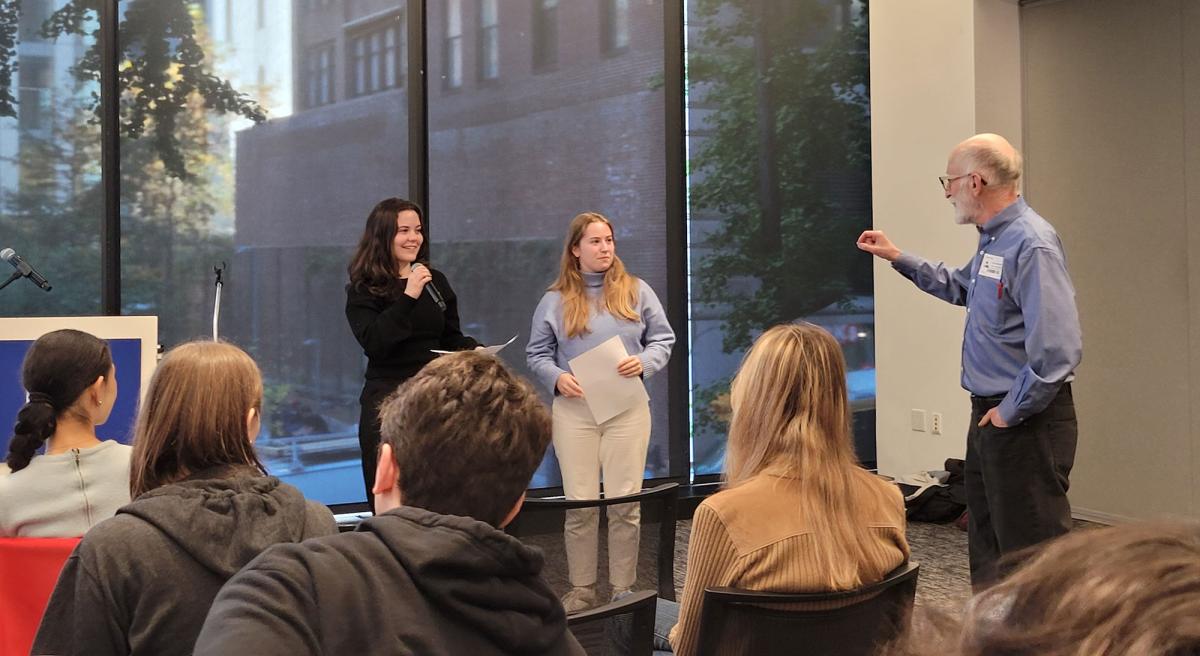
This past fall, Krichmaryov and Nasteva, international students from, respectively, Ukraine and Bulgaria, worked together to co-organize a successful event that brought prominent US labor economist Daniel Hamermesh, PhD, to the New York City campus.
The event featured a presentation of Hamermesh’s research on the relationship between beauty and an individual’s success, employment, and productivity, and included an open Q&A with the audience. It was made possible in large part by Mary Kaltenberg, PhD, another female role model in the department, who is director of the department’s new BS in Computational Economics, a joint offering with Pace’s Seidenberg School of Computer Science.
Research opportunities and conference presentations
In March 2024, Kaltenberg, with department colleague Eric Osborne Christenson, PhD, mentored students – nearly 60% female – as they prepared for another experiential learning opportunity: presentation of their research at the annual Eastern Economic Association conference in Boston, one of the major conferences for professional economists on the East Coast.
As is often the case, Dyson Economics students stood out from the crowd.
“Many attendees assumed our students were doctoral students. I was proud of the level of their work – many used advanced econometric techniques, had clever topics and ideas, and presented professionally,” beams Kaltenberg.
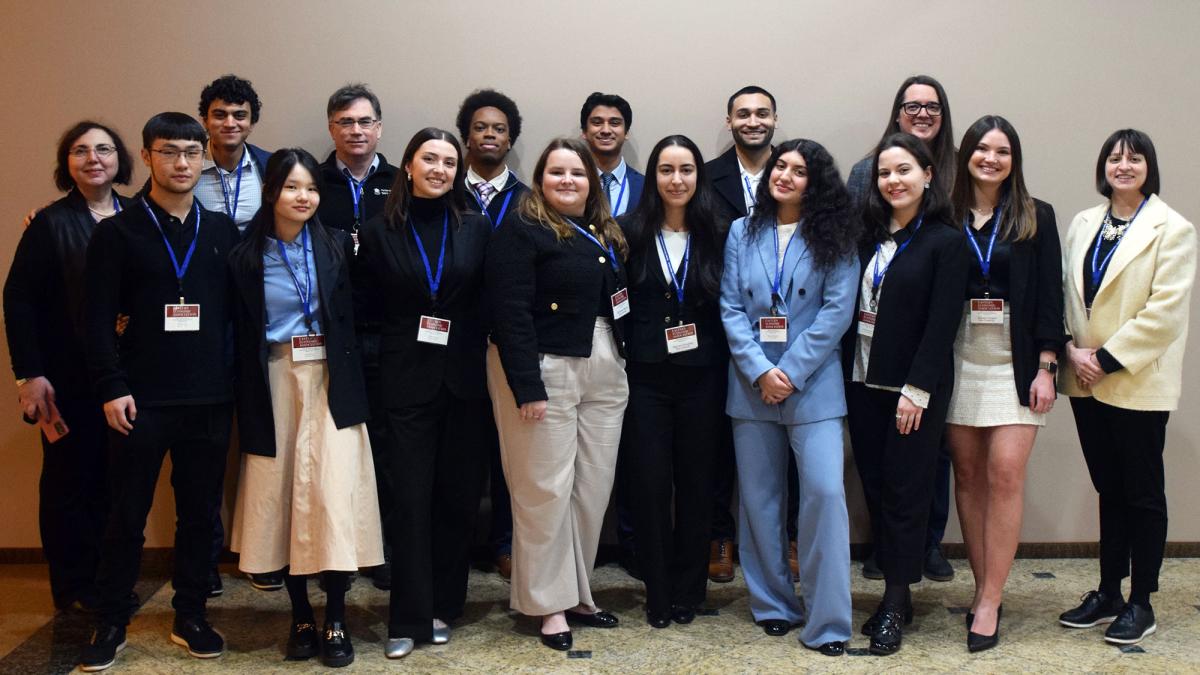
Underscoring how female students are supported is Associate Professor Veronika Dolar’s (PhD), and Victoria Kang’s (Computational Economics major) research collaboration. Their work was accepted for presentation at the Allied Social Science Associations annual conference in January 2025, a prestigious gathering organized by the National Association of Economic Educators and chaired by Andrew Hill from the Federal Reserve Bank of Philadelphia.
At the conference, Kang presented on how undergraduate students used Perusall, a collaborative annotation platform, in Dolar’s Economics of Gender, Race, and Class course. It examined how Perusall facilitated discussions on challenging topics — particularly those related to gender, race, and class — by employing both quantitative and qualitative student survey data. The findings offered valuable insights into the role of educational technology in enhancing engagement and fostering meaningful dialogue on sensitive issues.
Dolar’s pride is evident: “Victoria’s presentation was well received by conference attendees, and she had ample opportunity to learn more about academic conferences, network with leading economists, and gain exposure to a range of research endeavors. Her role as an ambassador for Pace was commendable, illustrating the high quality of research and academic rigor our institution supports.”
Alumnae who give back
Shostya also supports the success of female students in her department by her natural knack for bringing alumni back to campus.
Economics female alumnae, who often return to talk to the freshmen and serve as role-models, work in a variety of industries, from entertainment to pharmaceutical, to finance, and typically have very successful and rewarding careers both in private and public sectors.
Katie Craig ‘16, Economics, a former two-time national Fed Reserve Challenge-winning team member, is one of them.
Currently a vice president of US Rates Strategy at Bank of America - Merrill Lynch, since graduating from Pace, Craig has stayed connected with the department in multiple ways, including serving on the Economics Department Alumni Board, mentoring current Fed team students, and attending Economics Society networking events.
She said, “Giving back to the students and faculty who supported me feels like the best way to express my gratitude for the incredible experience I had at Pace.”
The numbers add up
With leadership from Department Chair Shostya and both her female and male faculty colleagues, Pace’s Economics department has been able to defy the odds when it comes to female representation in the field of economics.
They have made economics exciting, fun, and applicable outside of the classroom, and, in doing so, the numbers in relation to female representation in the field – have added up, in so many ways.
Read more about Shostya and the support of women in economics at Pace.
